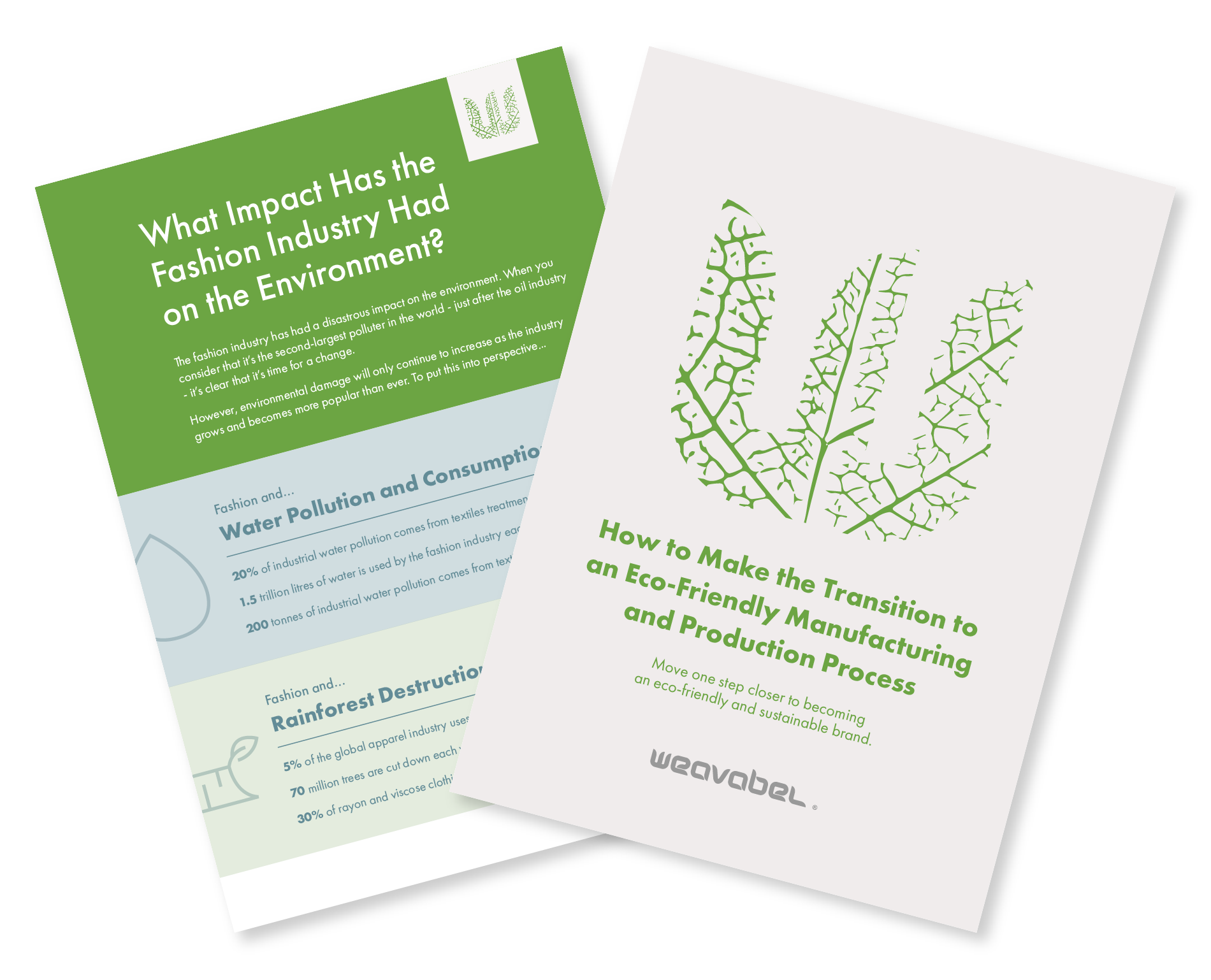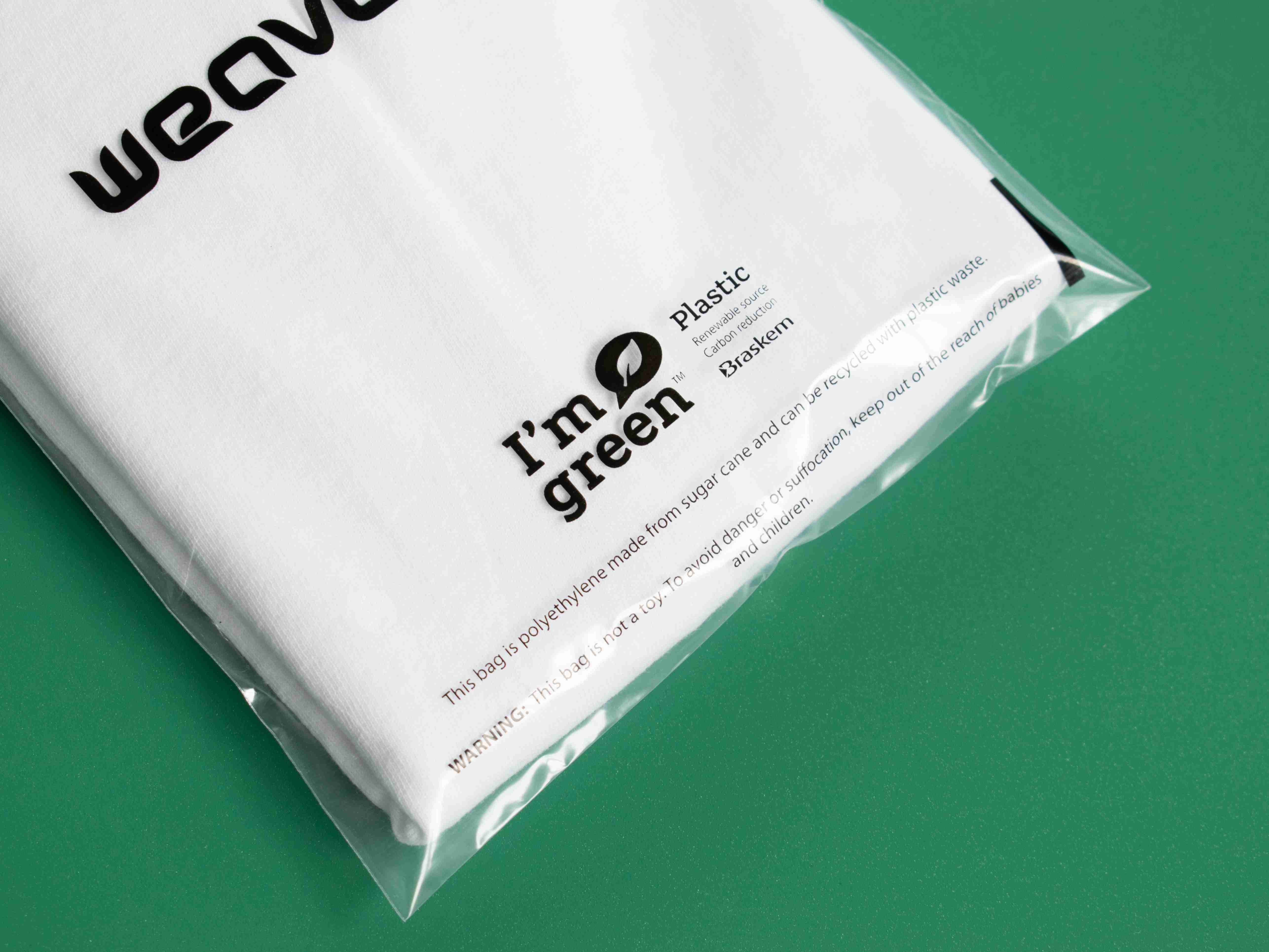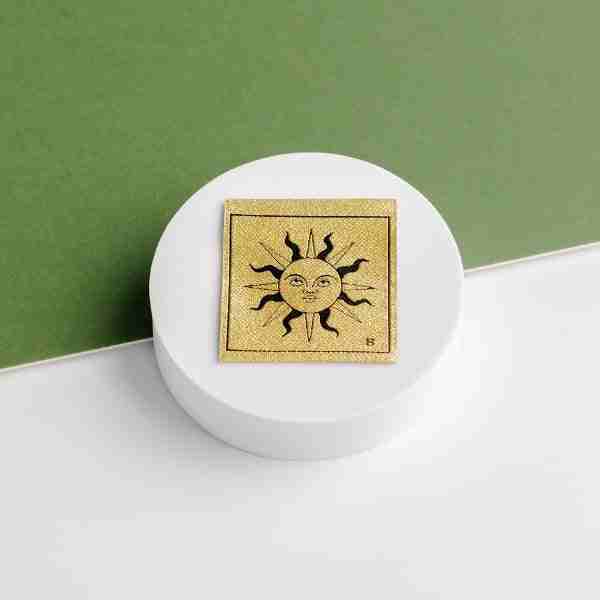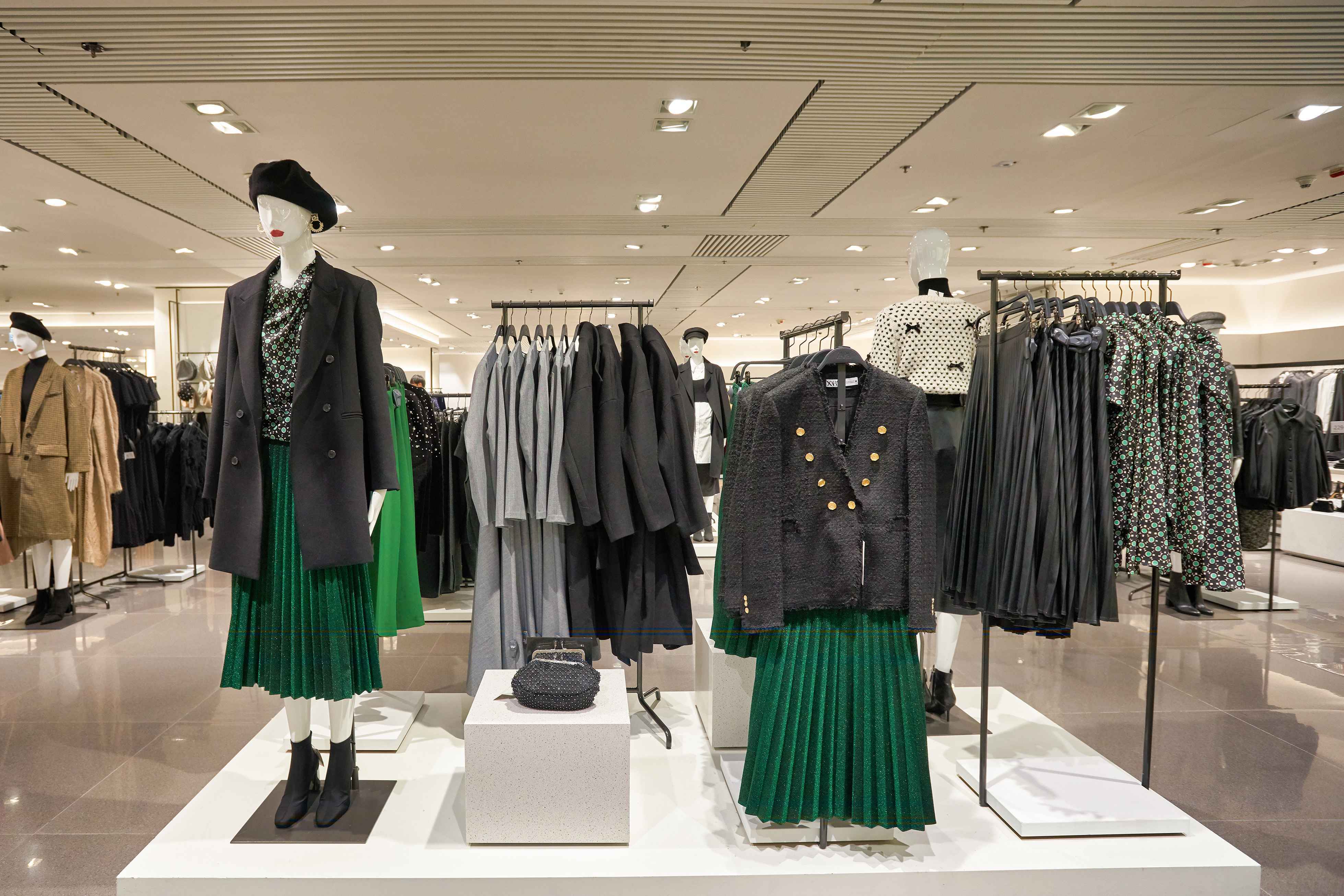The 7 Biggest Advantages of Biodegradable Plastics and How You Can Use Them
Biodegradable plastics offer a much more sustainable option over traditional ones. Here are 7 advantages to using them.
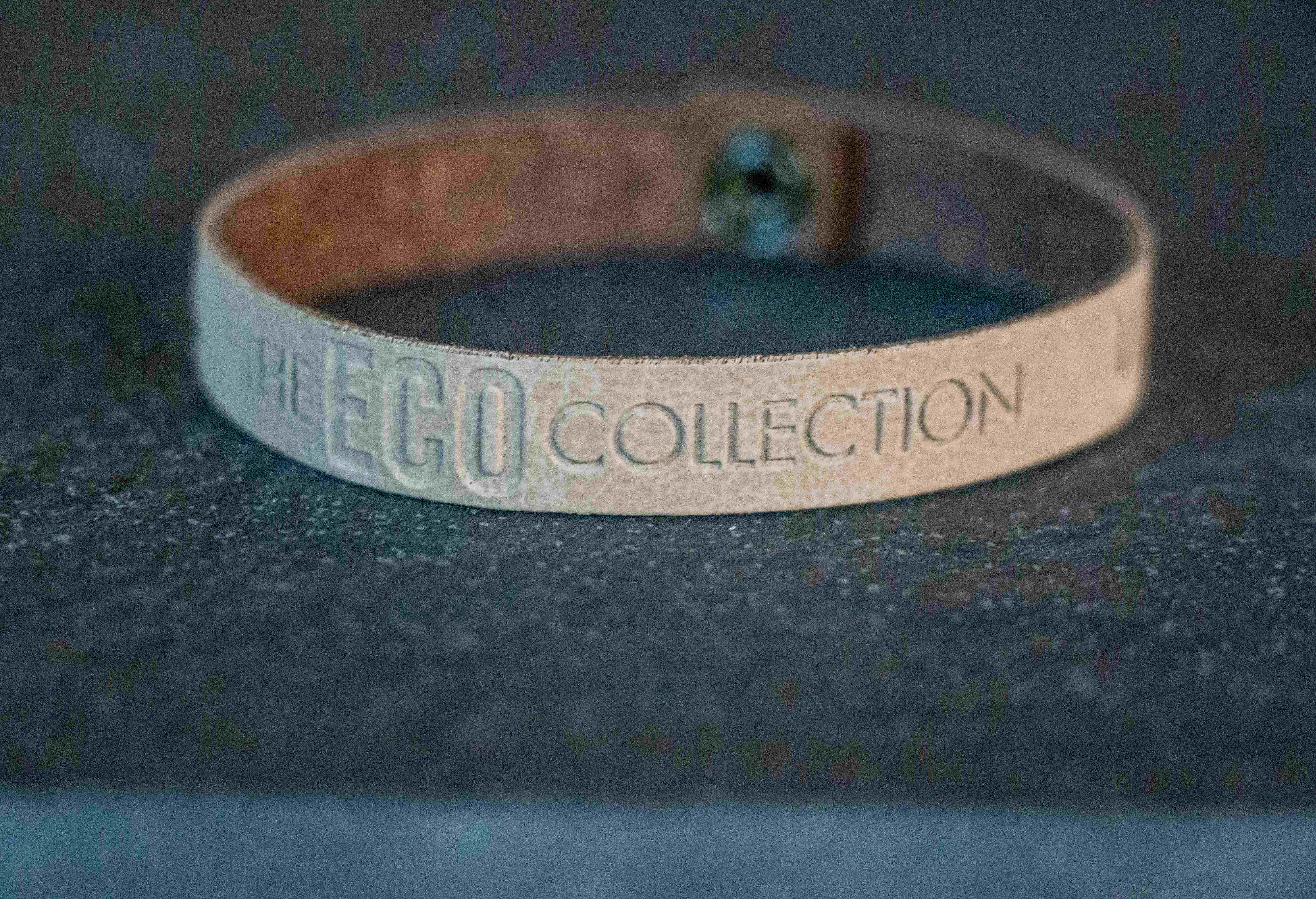
The fashion industry uses a lot of traditional plastic. Microplastics have been found in Arctic snow. Plastic bags have been found in the Mariana Trench. It’s a big problem.
To tackle this issue, it’s good to know the benefits that the alternatives can provide.
Below you can explore seven important benefits that biodegradable plastics have to offer:
- Biodegradable Plastics Produce Less Emissions
- Less Energy is Used in Their Production
- Biodegradable Plastics = Less Waste
- Petroleum Will Eventually Run Out
- Biodegradable Plastics Can Decompose Quickly
- Say Goodbye to Harmful Chemicals
- Sustainable Business Practices are Popular
1. Biodegradable plastics produce less emissions
We consume over 100 million tonnes of plastic each year. In 2015, the greenhouse gas emissions from plastic production was equivalent to nearly 1.8 billion metric tons of carbon dioxide (CO2). That’s a lot of garment trims and fashion debris.
Biodegradable plastics offer a reduced rate of these emissions as they’re not made through the harmful extraction and refinement of petroleum.
For every ton of petroleum-based plastics produced, there’s up to three tons of CO2 that follows suit. With bio-polymers, this figure is reduced to 0.5 tons.
Finally, biodegradable plastics can actually help remove carbon dioxide from the atmosphere. As bio-polymers are derived from plants, this means it takes a lot of CO2 from the atmosphere for plant growth. This is known as a ‘carbon sink’.
2. Less energy is used in their production
With biodegradable plastics, we no longer need to go through the lengthy process of finding hydrocarbons (in the traditional case, crude oil). We no longer have to use expensive and devastating processes when it comes to extracting, transporting and refining.
This means we are consuming less energy in the production stage. More importantly, we are burning less fossil fuels.
If we add in the energy to clean and recycle plastics, biodegradable alternatives offer a less energy-intense route.
3. Biodegradable plastics = less waste
It’s estimated there are over five trillion pieces of plastic in our oceans. Plastics also make up 13% of our current waste, which translates as roughly 32 million tons each year.
If current trends remain stable, there will be more plastic than fish in our oceans by 2050 - especially as we use plastic in everything. Even our clothes. Think of the packaging and trims your garments comes with. All those small bits of plastic add up.
Depending on the method of breakdown, a piece of biodegradable plastic can either fully biodegrade or be reduced by a significant portion of size in 18 to 36 months. Traditional plastic can take up to 1,000 years to fully biodegrade, so this represents a huge improvement.
Brands are now beginning to look into eco-friendly business practices. There are many brands out there that practise them and create beautiful garments and accessories, such as Citizen Wolf, STORY mfg and GRAMMAR, amongst hundreds of others.
Tags, trims and labels are an important part of any brand. Finding ones that are made from recycled and eco-friendly material is a small change in your production, but makes a significant difference to your environmental impact.
Here at Weavabel, we’re branding specialists who continue to invest time and money in sustainable practices. We’ve developed a range of eco-friendly tickets, labels, tags and packaging that you can explore to get a feel for what less waste truly looks like.
4. Petroleum will eventually run out
In 2018, 93 million barrels of oil were used everyday globally. That’s an incredible statistic. Petroleum is a finite source. There’s only a certain amount hidden under our feet and it won’t last forever.
Growing crops to create biodegradable plastics can theoretically last forever, if there is good farmland available.
Combine this with renewable energy use and you have a winning combination for environmentally friendly production.
5. Biodegradable plastics can decompose quickly
Under the right circumstances, bio-polymers can decompose fast. For things to break down properly, you need warmth and moisture so that natural processes can get to work.
If these conditions are met, some biodegradable plastics can breakdown within just a few weeks. You can even add some to your garden compost bin.
This means biodegradables won’t sit forever in landfills or clog up waterways. It’s a win-win situation.
6. Say goodbye to harmful chemicals
Over the cycle of their decomposition, traditional plastics can release pollutants such as methane or bisphenol A (BPA), which can harm both the environment and human health.
This isn’t the only chemical present in types of plastic. We’re also talking phthalates such as BBP, DBP and DIBP. These have been classified as harmful to human health.
Bio-polymers don’t contain these chemicals and so when they biodegrade, our environment and our health aren’t affected.
7. Sustainable business practices are popular
Biodegradable products are usually seen as a key part of sustainable business practices. Sustainability is the keyword on everyone’s lips. Organisations that have adopted sustainability practices, such as using biodegradable plastics, in their products are favoured by customers over organisations that don’t.
Including eco-friendly materials and biodegradable plastics in your products and packaging means you stand to gain the benefits from customers who resonate with your sustainability practices.
That being said, sustainability is more than a trend. It’s an idea backed by science and can help to change the world. The change towards sustainability is a change you need to action.
Summary
- Biodegradable plastics are a powerful tool for reducing our environmental footprint. Their production uses significantly less energy and releases fewer carbon emissions than traditional plastics, while also helping to keep waste out of landfills and oceans due to their ability to decompose quickly.
- Unlike fossil-fuel-based plastics, biodegradable plastics are derived from renewable resources like plant-based biopolymers. This offers a perpetually renewable source for plastic production, lessening our reliance on finite petroleum.
- Biodegradable plastics do not contain or release harmful toxins such as BPA, methane, or phthalates during their manufacturing or decomposition. This makes them a safer choice for both the environment and human health.
- Adopting biodegradable plastic solutions can significantly enhance a brand's image and appeal. Consumers are increasingly prioritizing sustainability, and using eco-friendly packaging can act as a key differentiator, helping your brand connect with a broader, more conscious customer base.
Say yes to sustainable business practices and involve them in your processes
If you’re looking to make your fashion brand more sustainable, issues like biodegradable versus traditional plastics can be important to consider.
To answer your questions, we’ve created a handy guide for brands that are wanting to make the transition to sustainable production methods. It has everything from how the world-leading fashion brands are reacting, and what the current customer trends are when it comes to looking for sustainable products.
Download your free useful guide today! Fill in the form to receive a FREE copy of the eBook and kick start your journey to becoming a sustainable brand.
MAKE FASHION SUSTAINABLE
Join brands such as MANGO, Zara, Stella McCartney and many more when it comes to sustainable fashion. The fashion industry has had a disastrous impact on the environment, and for many brands the time to change is now!
To help you start your journey to becoming an eco-friendly brand we've created a guide all about:
How to Make the Transition to an Eco-Friendly Manufacturing and Production Process
In the eBook you will learn:
- What impact the fashion industry has had on the environment
- How consumer trends in sustainability have evolved
- What the world-leading fashion brands are doing right now
- How production processes can be more eco-friendly
- How to make the transition to becoming a more sustainable brand
